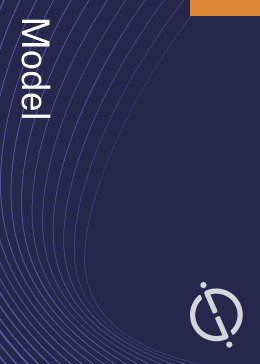ADI-001 is a gene-modified cell therapy commercialized by Adicet Bio, with a leading Phase I program in B-Cell Non-Hodgkin Lymphoma. According to Globaldata, it is involved in 4 clinical trials, of which 2 are ongoing, and 2 are planned. GlobalData uses proprietary data and analytics to provide a complete picture of ADI-001’s valuation in its risk-adjusted NPV model (rNPV). Buy the model here.

Discover B2B Marketing That Performs
Combine business intelligence and editorial excellence to reach engaged professionals across 36 leading media platforms.
The revenue for ADI-001 is expected to reach an annual total of $32 mn by 2039 globally based off GlobalData’s Expiry Model. The drug’s revenue forecasts along with estimated costs are used to measure the value of an investment opportunity in that drug, otherwise known as net present value (NPV). Applying the drug’s phase transition success rate to remaining R&D costs and likelihood of approval (LoA) to sales related costs provides a risk-adjusted NPV model (rNPV). The rNPV model is a more conservative valuation measure that accounts for the risk of a drug in clinical development failing to progress.
ADI-001 Overview
ADI-001 is under development for the treatment of non-Hodgkin’s lymphomas including follicular lymphoma, mantle-cell lymphoma, marginal zone lymphoma, mediastinal lymphoma, diffuse large b cell lymphoma. The therapeutic candidate comprises of allogenic gamma delta T cells expressing chimeric antigen receptors (CARs) directed to CD20. It acts by targeting cells expressing CD20. It is administered via parenteral route. The therapeutic candidate is being developed based on universal immune cell therapy (uICT) platform technology and T cell receptor-like monoclonal antibodies (TCRLs).
It was under development for the treatment of chronic lymphocytic leukemia (CLL), burkitt lymphoma.
Adicet Bio Overview
Adicet Bio, formerly resTORbio, is a clinical stage biotechnology company, discovers and develops allogeneic gamma delta T cell therapies for cancer and other diseases. The company offers gamma delta T cells engineered with chimeric antigen receptors and chimeric adaptors to enhance selective tumor targeting, facilitate innate and adaptive anti-tumor immune response, and enhance persistence for durable activity in patients. Its lead product in pipeline includes ADI-001, which is in Phase I clinical study for the treatment of non-Hodgkin’s lymphoma. The company also develops ADI-002, which is undergoing preclinical studies for the treatment of various solid tumors; and ADI-925, a novel engineered CAd gamma delta T cell product candidate targeting tumor stress ligands. Adicet Bio is headquartered in Boston, Massachusetts, the US.
For a complete picture of ADI-001’s valuation, buy the drug’s risk-adjusted NPV model (rNPV) here.
Data Insights
From

The gold standard of business intelligence.
Blending expert knowledge with cutting-edge technology, GlobalData’s unrivalled proprietary data will enable you to decode what’s happening in your market. You can make better informed decisions and gain a future-proof advantage over your competitors.



